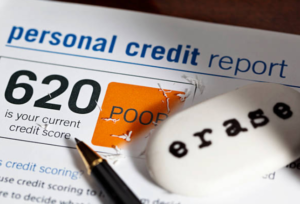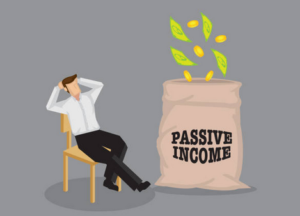Borrowing money can feel like stepping onto a tightrope. On one side, some opportunities can propel you forward—like starting a business, buying a home, or funding an education. On the other side lies the potential for falling into debt traps that can haunt you for years. The key to navigating this balancing act is responsible borrowing. Understanding your motives and the ins and outs of loans will empower you to make smart decisions. With careful planning and healthy credit habits, you can ensure that borrowing serves as a tool for growth rather than a source of stress. Ready to learn how? Let’s dive in.
Understand Why You’re Borrowing
Before you take the plunge into borrowing, pause and reflect on your reasons. Are you financing a necessity or indulging in a want? Knowing the purpose behind your loan is crucial. If it’s for something essential—like medical expenses or education—it may be worth the commitment. But if you’re considering borrowing for non-essentials, such as luxury items, think twice. Evaluate whether this decision aligns with your long-term goals. Will this loan enhance your life or simply add to your financial strain? Also, consider alternatives.
Understand the Terms of the Loan

Before signing any loan agreement, take a moment to dissect the terms. A clear understanding can save you from potential pitfalls. Start with the interest rate. Is it fixed or variable? A fixed rate offers stability, while a variable rate could fluctuate over time. Next, look at the repayment schedule. How long do you have to pay off the loan? Shorter terms often mean higher monthly payments but less interest overall.
Create a Repayment Plan Before You Borrow
Creating a repayment plan before borrowing is crucial. It prepares you for the financial commitment ahead. Start by determining how much you can realistically afford to pay each month. Factor in your income, expenses, and any other debts. This will help you avoid feeling overwhelmed later on. Consider the loan’s terms as well. Understand how interest rates affect your payments over time. A clear picture of your obligations helps prevent surprises down the road.
Build Healthy Credit Habits

Building healthy credit habits is essential for anyone looking to borrow responsibly. Start by regularly checking your credit report. This helps you stay informed about your score and spot any inaccuracies early. Paying bills on time can make a significant difference. Set reminders or automate payments to ensure you never miss a due date. Use credit cards wisely, keeping balances low relative to your limits. Aim for 30% utilization or less; this shows lenders you’re responsible with debt.
Borrowing money can be a useful tool when done wisely. It allows you to reach goals that may otherwise be out of reach, whether it’s purchasing a home, funding education, or covering unexpected expenses. However, it’s crucial to approach borrowing with caution. By taking these steps seriously—understanding your motivations, familiarizing yourself with loan terms, planning repayments carefully, and nurturing good credit—you position yourself to borrow responsibly while steering …






 One of the key functions of artificial intelligence in the financial markets is to evaluate large databases and extract meaningful information. AI algorithms utilize machine learning and natural language processing to analyze financial reports, news articles, and social media sentiment in real time. By identifying patterns and correlations that may elude human analysts, AI models can forecast market trends, identify trading opportunities, and predict price movements with greater accuracy.
One of the key functions of artificial intelligence in the financial markets is to evaluate large databases and extract meaningful information. AI algorithms utilize machine learning and natural language processing to analyze financial reports, news articles, and social media sentiment in real time. By identifying patterns and correlations that may elude human analysts, AI models can forecast market trends, identify trading opportunities, and predict price movements with greater accuracy. AI is reshaping the landscape of financial markets, driving innovation, efficiency, and competitiveness across the industry. From data analysis and prediction to algorithmic trading and risk management, AI is playing an increasingly integral role in investment practices and market dynamics. As AI technologies continue to evolve, market participants must navigate the opportunities and difficulties presented by this transformative force, ensuring that AI-driven innovations are deployed responsibly and ethically to promote financial stability, integrity, and investor confidence.…
AI is reshaping the landscape of financial markets, driving innovation, efficiency, and competitiveness across the industry. From data analysis and prediction to algorithmic trading and risk management, AI is playing an increasingly integral role in investment practices and market dynamics. As AI technologies continue to evolve, market participants must navigate the opportunities and difficulties presented by this transformative force, ensuring that AI-driven innovations are deployed responsibly and ethically to promote financial stability, integrity, and investor confidence.…

 Tax laws and regulations are subject to change, so reviewing and optimizing your tax strategies regularly is essential. Stay informed about updates that may impact your business, and consult a tax professional to ensure you remain compliant while maximizing your tax benefits.
Tax laws and regulations are subject to change, so reviewing and optimizing your tax strategies regularly is essential. Stay informed about updates that may impact your business, and consult a tax professional to ensure you remain compliant while maximizing your tax benefits.
 One of the worst mistakes you can make when repairing your credit is procrastinating. It will only worsen the situation and take much longer to fix. It’s essential to take action as soon as possible so you can start seeing results. Moreover, procrastinating also means that you may be late on your payments, only damaging your credit score further. Not paying your bills on time is one of the most significant factors that affect your credit score.
One of the worst mistakes you can make when repairing your credit is procrastinating. It will only worsen the situation and take much longer to fix. It’s essential to take action as soon as possible so you can start seeing results. Moreover, procrastinating also means that you may be late on your payments, only damaging your credit score further. Not paying your bills on time is one of the most significant factors that affect your credit score. Last but not least, it’s the worst among all mistakes – falsifying your documents. Some people think they can improve their credit score by providing false information on their credit reports. Not only is it illegal, but it can also lead to severe consequences.
Last but not least, it’s the worst among all mistakes – falsifying your documents. Some people think they can improve their credit score by providing false information on their credit reports. Not only is it illegal, but it can also lead to severe consequences.

 The last downside of credit cards is that they come with huge fees. If you are late on a payment, you may be charged a late fee. If you go over your credit limit, you may be charged an over-limit fee. And if you decide to close your account, you may be charged a termination fee. This is why you must think about the fees before you decide to use a credit card.
The last downside of credit cards is that they come with huge fees. If you are late on a payment, you may be charged a late fee. If you go over your credit limit, you may be charged an over-limit fee. And if you decide to close your account, you may be charged a termination fee. This is why you must think about the fees before you decide to use a credit card.
 When we say credit score, we don’t mean your university’s GPA. Your credit score is a number that represents your creditworthiness to lenders. A high credit score indicates you’re suitable for loans, which will make it easier and cheaper for you to borrow money in the future. Having a low score will make your life as an adult much harder, so you need to know the top credit repair service near you. There are a few things you can do to maintain a high credit score:
When we say credit score, we don’t mean your university’s GPA. Your credit score is a number that represents your creditworthiness to lenders. A high credit score indicates you’re suitable for loans, which will make it easier and cheaper for you to borrow money in the future. Having a low score will make your life as an adult much harder, so you need to know the top credit repair service near you. There are a few things you can do to maintain a high credit score: Investing doesn’t have to mean buying stocks or picking a mutual fund. It can also mean investing in yourself. This could be anything from taking a class to learning how to cook. Investing in yourself will pay off professionally and personally in the long run.
Investing doesn’t have to mean buying stocks or picking a mutual fund. It can also mean investing in yourself. This could be anything from taking a class to learning how to cook. Investing in yourself will pay off professionally and personally in the long run.
 Cost is always a consideration when purchasing insurance, and final expense policies are no exception. Premiums for these policies vary depending on the policyholder’s age and the amount of coverage purchased. If you are tight on cash, you may want to consider a lower premium policy that offers less coverage. It is why it is important to review all of your options and find the best policy for you.
Cost is always a consideration when purchasing insurance, and final expense policies are no exception. Premiums for these policies vary depending on the policyholder’s age and the amount of coverage purchased. If you are tight on cash, you may want to consider a lower premium policy that offers less coverage. It is why it is important to review all of your options and find the best policy for you.
 One of the best advantages of an emergency loan is getting quick access to cash. This type of loan does not require a lot of paperwork, so you can usually get the money within a few days after applying. Contrast this with a traditional personal or business loan, which can take weeks or even months to process. If you are facing an emergency, the quick access to cash provided by this loan can be a lifesaver. It could allow you to continue making payments on your house or car so that you don’t risk losing them in foreclosure or repossession.
One of the best advantages of an emergency loan is getting quick access to cash. This type of loan does not require a lot of paperwork, so you can usually get the money within a few days after applying. Contrast this with a traditional personal or business loan, which can take weeks or even months to process. If you are facing an emergency, the quick access to cash provided by this loan can be a lifesaver. It could allow you to continue making payments on your house or car so that you don’t risk losing them in foreclosure or repossession.



 You should not assume that all credit repair service providers are the same or offer similar packages. Among the critical things to consider is the number of disputes that a repair company will file for you and the frequency. While some file for you a maximum of 15 disputes in a month, other file unlimited disputes. It then goes without saying that if you have many issues to be sorted out, you are better off paying a little more for unlimited filing of disputes.
You should not assume that all credit repair service providers are the same or offer similar packages. Among the critical things to consider is the number of disputes that a repair company will file for you and the frequency. While some file for you a maximum of 15 disputes in a month, other file unlimited disputes. It then goes without saying that if you have many issues to be sorted out, you are better off paying a little more for unlimited filing of disputes. We all like to save some bucks while buying goods or services. Therefore, you need to check the prices that the various firms charge. Typically, most service providers require clients to pay a start-up fee to spend some time analyzing their files to determine if they can help them boost their credit rating.
We all like to save some bucks while buying goods or services. Therefore, you need to check the prices that the various firms charge. Typically, most service providers require clients to pay a start-up fee to spend some time analyzing their files to determine if they can help them boost their credit rating. Because it is hard to establish if a
Because it is hard to establish if a 



 When choosing a card credit processor, one of the vital things you need to consider in this process is the transaction fees. In reality, you need to understand the difference between a transaction fee and a monthly fee.
When choosing a card credit processor, one of the vital things you need to consider in this process is the transaction fees. In reality, you need to understand the difference between a transaction fee and a monthly fee. In most cases, when you are in business, you will find out that most credit card companies are known for their transparency. Therefore, when choosing a credit card processor, you need to understand their prices before making the right decision. In other words, as an entrepreneur, understanding all the costs in this process can help you avoid statement fees.
In most cases, when you are in business, you will find out that most credit card companies are known for their transparency. Therefore, when choosing a credit card processor, you need to understand their prices before making the right decision. In other words, as an entrepreneur, understanding all the costs in this process can help you avoid statement fees. It is advisable to consider the customer of a given company before hiring them. In addition, you should note that technical issues with payment processing can cost you a lot in your business. Therefore, the last thing you want is a rude technical support team solving your problems. That is why it is crucial to consider dealing with a processor who has knowledgeable and timely staff members willing to help you at all hours.
It is advisable to consider the customer of a given company before hiring them. In addition, you should note that technical issues with payment processing can cost you a lot in your business. Therefore, the last thing you want is a rude technical support team solving your problems. That is why it is crucial to consider dealing with a processor who has knowledgeable and timely staff members willing to help you at all hours.
 When forming a nonprofit company, it is crucial to note that it contains its separate existence. In other words, it has the opportunity to enter its contracts, and when things go wrong, it is responsible for its contractual and other obligations.
When forming a nonprofit company, it is crucial to note that it contains its separate existence. In other words, it has the opportunity to enter its contracts, and when things go wrong, it is responsible for its contractual and other obligations. It is crucial to note that some nonprofits companies are eligible to receive private and public grants. That is why it is easier for these organizations to receive operating capital. However, some states have different laws, so before creating your organization, make sure you go through them.
It is crucial to note that some nonprofits companies are eligible to receive private and public grants. That is why it is easier for these organizations to receive operating capital. However, some states have different laws, so before creating your organization, make sure you go through them.




 Some signal providers offer manual and automated service signals, and you can be flexible to use either. Traders that choose the manual option have a better edge in the market and adapt to the changing market conditions faster. Some forex signal providers conduct market research analysis and issue trade alerts based on certain factors present in a given time. Most of them keep in touch with the technical pattern, upcoming news, and fundamental data. Professional traders and forex trading signals providers are discretionary.
Some signal providers offer manual and automated service signals, and you can be flexible to use either. Traders that choose the manual option have a better edge in the market and adapt to the changing market conditions faster. Some forex signal providers conduct market research analysis and issue trade alerts based on certain factors present in a given time. Most of them keep in touch with the technical pattern, upcoming news, and fundamental data. Professional traders and forex trading signals providers are discretionary. When choosing a forex signal provider, look at the page performance and consider asking the signal provider for a proven track record verified by a third party. Checking the user reviews and analyzing the strategies that most providers use to have a high win rate will help you get other peoples’ opinions on the trades.
When choosing a forex signal provider, look at the page performance and consider asking the signal provider for a proven track record verified by a third party. Checking the user reviews and analyzing the strategies that most providers use to have a high win rate will help you get other peoples’ opinions on the trades.



